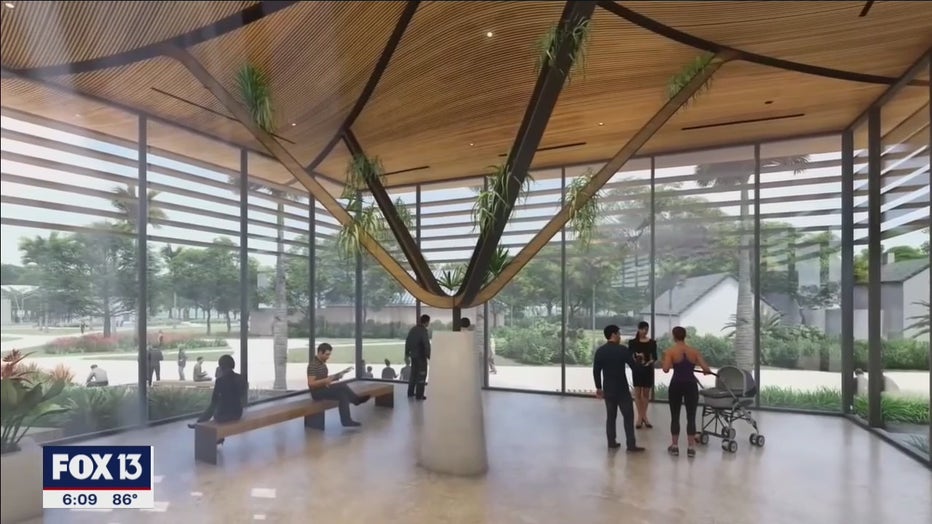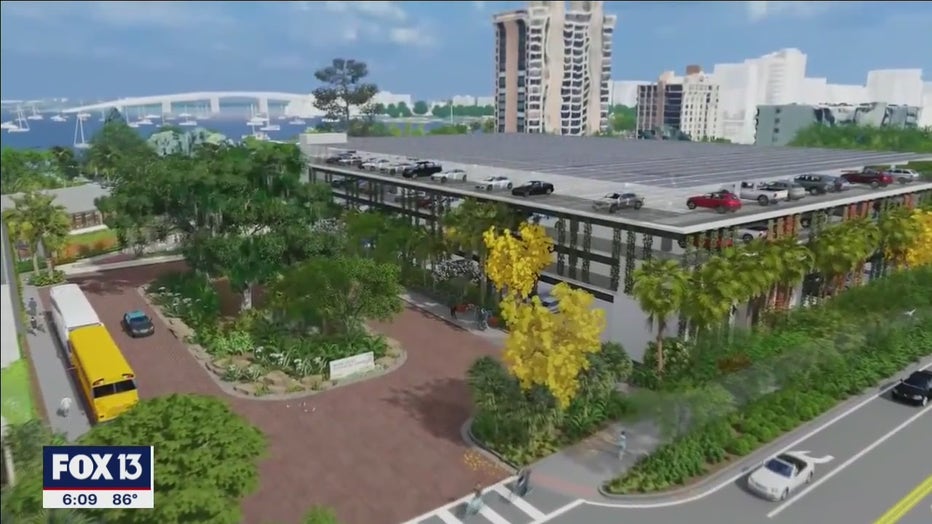Selby Gardens begins upgrades; will soon be first fully-solar botanical garden
SARASOTA, Fla. - They're known for their beautiful orchids. More than 6,000 fill the property at Selby Gardens in downtown Sarasota. And now upgrades that will bring the gardens into the future are getting underway.
Thursday, a groundbreaking ceremony brought the community together. It's the first phase for the future of Selby Gardens.
"It’s so exciting to see Selby Garden’s vision for the future get started. We are thrilled that we are moving forward, and we are excited for what the future holds for us," said the president and CEO of Marie Selby Botanical Gardens, Jennifer Rominiecki.
Founded in 1973, the former home and gardens of Marine Selby were opened to the public.

Over several decades, the gardens have grown, and space and upgrades were needed.
"Phase 1 handles a lot of our urgent needs. We will have a new welcome center, a new plant research center to house all of our preserved collections, in addition, we will have the living energy access facility," Rominiecki said.
A 50,000-square-foot solar array will be housed, making Selby Gardens the only botanical garden in the world that produces more electricity than it uses.
"The fact that Selby Gardens will be the very first net positive botanical garden complex in the world makes not only Selby Gardens a leader, but the city of Sarasota and state a Florida an international leader in sustainability," Rominiecki said.

Future phases include a learning pavilion, preservation of the Payne Mansion and much more.
"Selby has always been part of the fabric of our downtown and who we are as a city," city of Sarasota Mayor Hagen Brody said.
Past and present, Selby gardens has and continues to be a vital part of Sarasota.
"This is at least a regional attraction, at most a national attraction. We are going to be bringing people here to this community that will experience this facility and these grounds and beautiful green space for generations to come," Brody said.
The first phase of Selby's master plan is slated to take about two years. All three phases will cost about $92 million.


